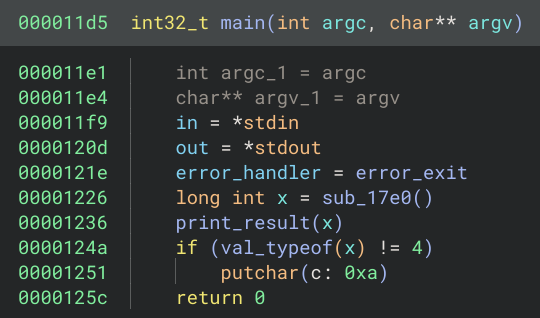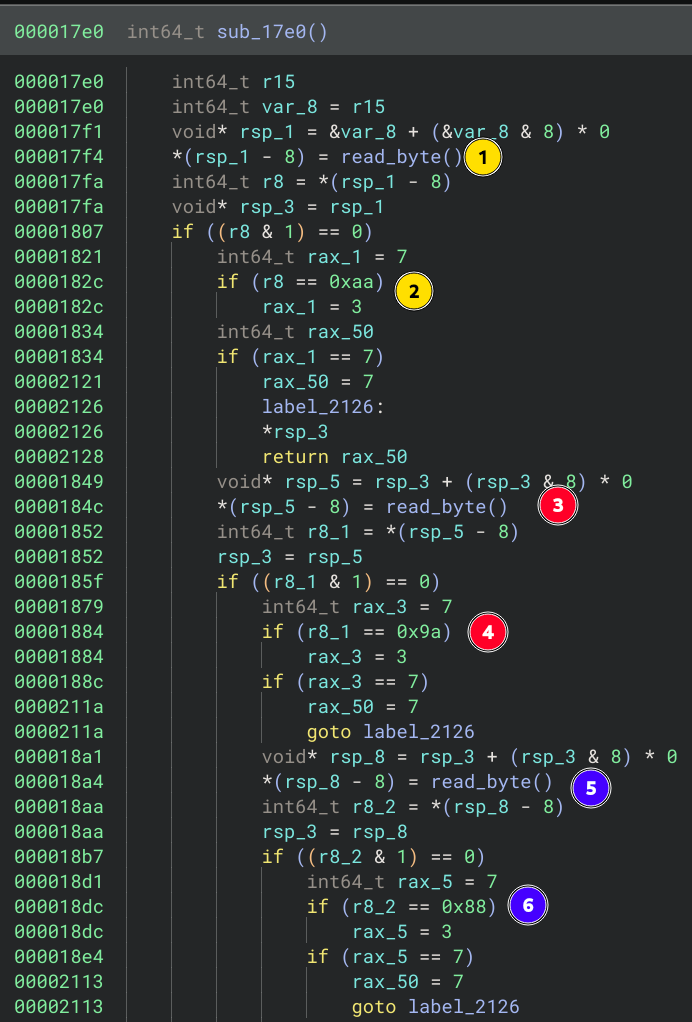Description
This binary was compiled by an hand-crafted, artisan racket compiler, courtesy of UMD’s very own CMSC430 class.
Reversing
The attachment was an standard x64 ELF file. After opening it in my decompiler, and going to the main function, everything seemed pretty straight.

Investigating this sub_17e0 function we see that it has a lot of deep nested conditionals, where in each step it calls read_byte() and then compares it to a byte.

To me this seemed like a pretty easy crack by using symbolic execution to find which input passess all of those conditionals. I tried using a simbolic execution engine inside Binary Ninja, but I never did it before and couldn’t make it work. So I ended up copying those bytes by hand and writing them to a python script to write them to a new file.
At first this didn’t work because I didn’t realize that the read_byte() function multiples by two the bytes that I reads, so I had to halve them.
Flag
a = bytes([0xaa, 0x9a, 0x88, 0x86, 0xa8, 0x8c, 0xf6, 0xe6, 0xd0, 0xde, 0xea, 0xe8,
0xbe, 0xde, 0xea, 0xe8, 0xbe, 0xe8, 0xde, 0xbe, 0xd4, 0xde, 0xe6, 0xca,
0xfa])
# Added later
b = bytes([x // 2 for x in a])
with open('sol.bin', "wb") as file:
file.write(b)
└─$ hexdump sol.bin
00000000 55 4d 44 43 54 46 7b 73 68 6f 75 74 5f 6f 75 74 |UMDCTF{shout_out|
00000010 5f 74 6f 5f 6a 6f 73 65 7d |_to_jose}|
00000019